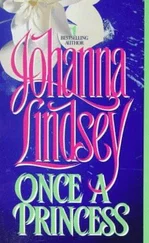John Berger - Once in Europa
Здесь есть возможность читать онлайн «John Berger - Once in Europa» весь текст электронной книги совершенно бесплатно (целиком полную версию без сокращений). В некоторых случаях можно слушать аудио, скачать через торрент в формате fb2 и присутствует краткое содержание. Год выпуска: 2014, Издательство: Bloomsbury Publishing, Жанр: Современная проза, на английском языке. Описание произведения, (предисловие) а так же отзывы посетителей доступны на портале библиотеки ЛибКат.
- Название:Once in Europa
- Автор:
- Издательство:Bloomsbury Publishing
- Жанр:
- Год:2014
- ISBN:нет данных
- Рейтинг книги:3 / 5. Голосов: 1
-
Избранное:Добавить в избранное
- Отзывы:
-
Ваша оценка:
- 60
- 1
- 2
- 3
- 4
- 5
Once in Europa: краткое содержание, описание и аннотация
Предлагаем к чтению аннотацию, описание, краткое содержание или предисловие (зависит от того, что написал сам автор книги «Once in Europa»). Если вы не нашли необходимую информацию о книге — напишите в комментариях, мы постараемся отыскать её.
Once in Europa — читать онлайн бесплатно полную книгу (весь текст) целиком
Ниже представлен текст книги, разбитый по страницам. Система сохранения места последней прочитанной страницы, позволяет с удобством читать онлайн бесплатно книгу «Once in Europa», без необходимости каждый раз заново искать на чём Вы остановились. Поставьте закладку, и сможете в любой момент перейти на страницу, на которой закончили чтение.
Интервал:
Закладка:
John Berger
Once in Europa
FOR NELLA
“Others have laboured and ye are entered into their labours.”
ST JOHN 4-38The Leather of Love
Weathered as gate posts
by departures
and the white ghosts
of the gone,
wrapped in tarpaulins,
we talk of passion.
Our passion’s the saline
in which hides are hung
to make from a hinge of skin
the leather of love.
The Accordion Player
Will you play at my wedding? Philippe the cheesemaker asked him. Philippe was thirty-four. People had been saying he would never get married.
When is it?
Saturday next.
Why didn’t you ask me before?
I didn’t dare. Will you?
Where does the bride come from?
Yvonne comes from the Jura. Drop into the Republican Lyre tonight and she’ll be there — her parents have come and some friends from Besançon.
The same evening the accordionist, a man in his fifties, found himself sitting in the café, drinking champagne offered by the bride’s father, next to a plump woman who laughed a lot and wore dangling earrings. The accordionist had been looking hard at the young bride and he was sure she was pregnant.
You will play for us? Philippe asked, filling up the glasses.
Yes, I’ll play for you and the Yvonne, he said.
On the floor at his feet lay a dog, its coat turned grey with age. From time to time he caressed its head.
What’s your dog’s name? asked the woman with earrings.
Mick, he said, he’s a clown without a circus.
He’s old to be a clown.
Fifteen Mick is, fifteen.
You have a farm?
At the top of the village — a place we call Lapraz.
Is it a big farm?
Depends who’s asking the question, he answered with a little laugh.
Delphine is asking you the question.
He wondered if she was often drunk.
Well, is it a big farm? she asked again.
One winter the Mayor asked my father: Have you got a lot of snow up at Lapraz? And do you know what Father replied? Less than you, Mr. Mayor, he said, because I own less land!
That’s beautiful! Delphine said, knocking over a glass as she put a hand on his shoulder. No fool, your father.
Have you come for the wedding? he asked her.
I’ve come to dress the bride!
Dress her?
It was me who made the wedding dress and there are always finishing touches to make on the Great Day!
Are you a dressmaker? he asked.
No! No! I work in a factory … I just pin things up for myself and friends.
That must save you money, he said.
It does, but I do it because it amuses me, like you play the accordion, they tell me …
You like music?
She disentangled her arms and held them wide apart as though she were measuring a metre and a half of cloth. With music, she sighed, you can say everything! Do you play regularly?
Every Saturday night in the café, weddings excepted.
This café?
No, the one at home.
Don’t you live here?
Lapraz is three kilometres away.
Are you married? she asked, looking him straight in the eye. Her own eyes were grey-green like the jacket she was wearing.
Unmarried, Delphine, he replied. I play at other men’s weddings.
I lost my husband four years ago, she said.
He must have been young.
In a car accident …
So quick! He pronounced the two words with such finality that she was silenced. She fingered the stem of her glass, then lifted it to her lips and emptied it.
You like playing the accordion, Félix?
I know where music comes from, he said.
That it was going to be a bad year had been evident to Félix from the moment in the spring when the snow thawed. All around the village there were pastures which looked as though they had been ploughed up the previous autumn and they hadn’t been. In the orchards the fruit trees were growing out of mud instead of grass. The earth everywhere was like an animal whose fur was falling out. All this was due to the invasion of the moles. Some maintained that the moles had multiplied so catastrophically because the foxes had died or been shot the year before. A fox eats thirty or forty moles a day. The foxes had died because of the rabies which had been brought to our region from the distant Carpathians.
He was standing motionless in the garden in front of his house. Across his body he was holding a spade. He had been like that for ten minutes. He was looking at the earth just ahead of his boots. Not a grain of soil stirred. Towards the mountain, a buzzard was circling, otherwise nothing in sight was moving. The leaves of the cabbages and cauliflowers in the garden were wilted and yellow. With one hand he could have lifted any one of these plants off the earth, as you lift a candlestick off a table. All their roots had been severed.
When he saw the soil stir, he raised his spade and struck, grunting as the spade entered the earth. He kicked the soil away. There were the disclosed tunnels and the dead culprit mole.
One less! he said, grinning.
Albertine, Félix’s mother, was watching her forty-year-old son through the kitchen window when he killed the mole with the spade. She shouted to him to come in because the meal was on the table.
With today’s sun, she said whilst they were eating, the potatoes shouldn’t be dirty.
They shouldn’t be, he replied.
The pup under the table looked up, hoping for a bone or some cheese-rind. He was large and black with blond marks shaped like almonds over each eye which made him look comic.
Ah, Mick! said Félix, our Mick’s a clown without a circus, isn’t he?
If you like, said Albertine, I’ll make potato fritters tonight.
With cabbage salad! He took off his cap and smeared his sleeve across his hot forehead. Why not?
Years before, when Albertine had been strong enough to work in the fields, they used to lift the potatoes together. Whilst working they would recite all the ways in which potatoes could be eaten: potatoes in their jackets, potatoes with cheese in the oven, potato salad, potatoes with pork fat, mashed potatoes with milk, potatoes cooked without water in the black iron saucepan, potatoes with leeks in the soup — and, best of all, potato fritters with cabbage salad.
The potatoes, unearthed that same morning, had dried well in the sun on the topsoil of the field. As Félix gathered them by hand into buckets, he sorted them. The small ones for the animals and poultry, the large ones for the table. Sometimes he moved forward stooping, sometimes he knelt between the rows and went forward on his knees, like a penitent. Mick, panting in the heat, lay on the ground and each time Félix moved forward, he accompanied him. When the buckets were full the man emptied the potatoes into sacks along the side of the field. The sacks were of strong white plastic and had contained fertiliser. When they were full, they looked liked praying drunks in white shirts.
Suddenly the dog became alert, his head down, nose in the broken earth. Breathing out heavily, he started to scrabble with his front paws and to scatter the soil behind him.
Fetch him! Mick, fetch him! Félix sat back on his heels to watch the young dog. He was happy to be diverted and to rest his back, which ached. The dog continued to dig excitedly.
You want him, Mick, don’t you?
At last the dog deposited a mole on the earth.
You have him, don’t let him go!
The dog tossed the mole into the air. For an instant the little animal in its grey fur coat, measuring fifteen centimetres in length and weighing a hundred and fifty grammes, with paws like hands, with very weak eyesight and acute hearing, renowned for his testicles and the exceptional amount of seminal fluid they produced, for an instant the little animal was hapless and alone in the sky.
Читать дальшеИнтервал:
Закладка:
Похожие книги на «Once in Europa»
Представляем Вашему вниманию похожие книги на «Once in Europa» списком для выбора. Мы отобрали схожую по названию и смыслу литературу в надежде предоставить читателям больше вариантов отыскать новые, интересные, ещё непрочитанные произведения.
Обсуждение, отзывы о книге «Once in Europa» и просто собственные мнения читателей. Оставьте ваши комментарии, напишите, что Вы думаете о произведении, его смысле или главных героях. Укажите что конкретно понравилось, а что нет, и почему Вы так считаете.












